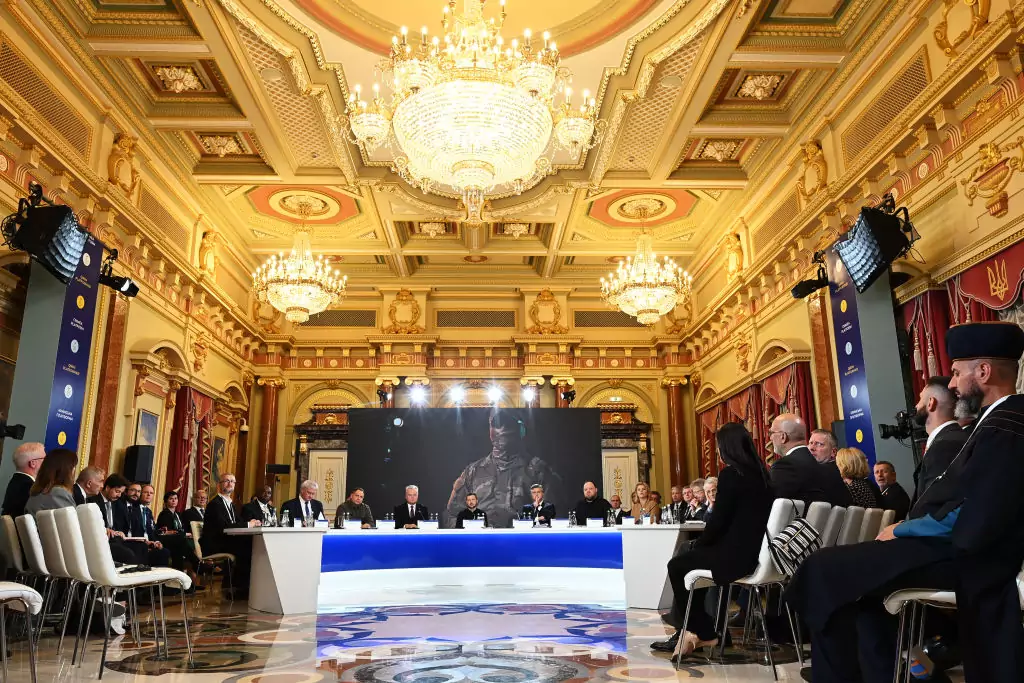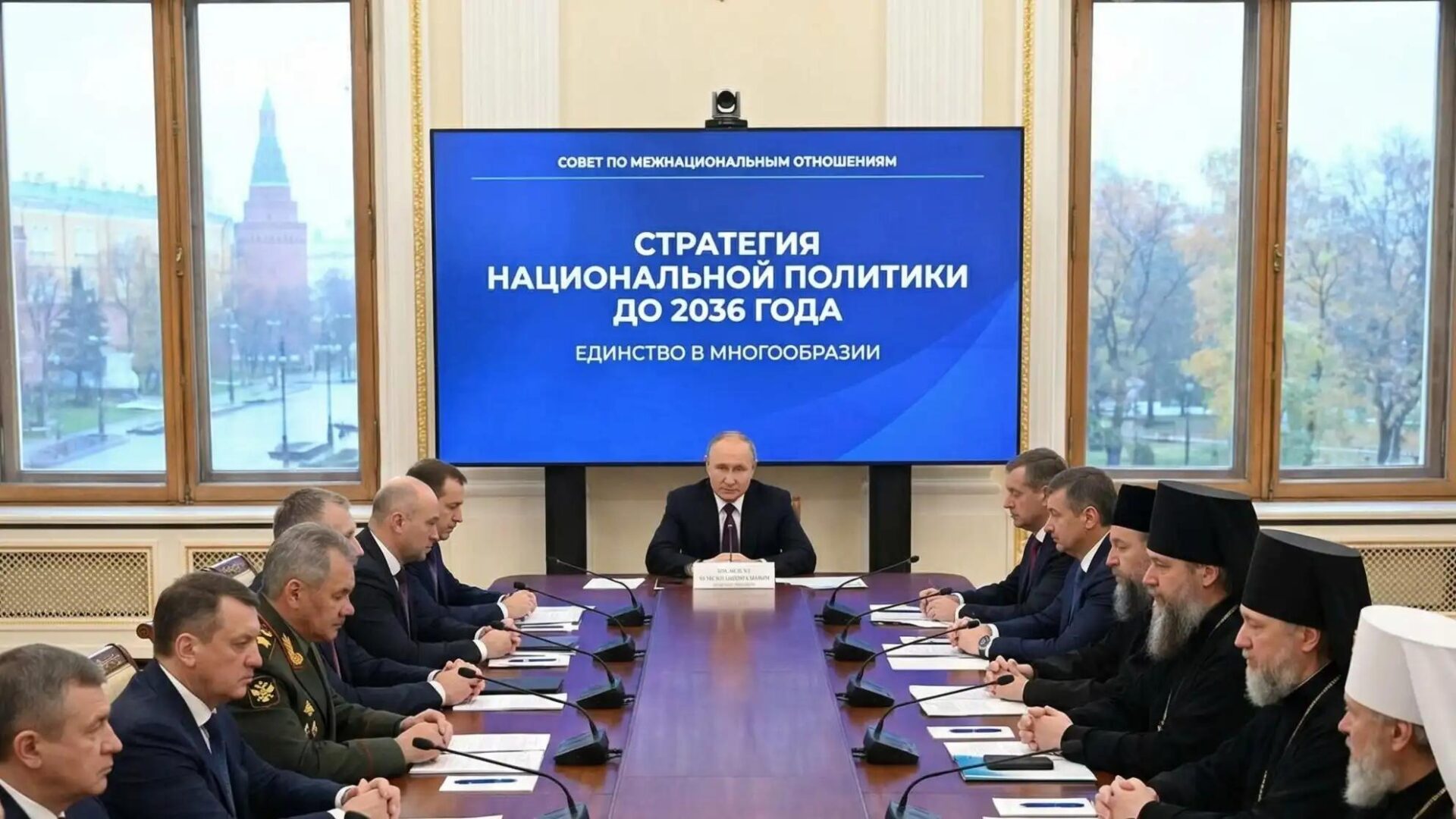
Kyiv Moving Toward More Direct Support of Non-Russian Movements within Russia
Executive Summary:
- Kyiv is moving toward more openly backing non-Russian national movements within Russia. It is convinced that such efforts will help it defeat Moscow’s invasion of Ukraine and that the decolonization of Russia will ensure Ukraine’s future security.
- Such moves, which have their origins in earlier efforts by Ukraine and others to counter Moscow, have so far been largely limited to declarations about Russian colonialism and providing a haven for nationalist leaders. That appears set to change.
- The lengths that Ukraine will now go to, however, remain unclear, but its moves have already alarmed Moscow and prompted it to crack down, and are worrying some in Ukraine and the West that any such moves could prove counterproductive, at least in the short term.
Since gaining independence in 1991, Ukrainians have focused attention on the large Ukrainian communities inside the Russian Federation (see EDM, January 18, 2023, January 25, July 30, 2024). Since Moscow launched its attacks on Ukrainian territory in 2014 and especially since 2022, Kyiv has also devoted more attention to non-Russian national movements within the current borders of the Russian Federation (see EDM, October 13, 2023). It has done so both in response to Moscow’s efforts to play up the ethnic factor in Ukraine and because it is convinced that such moves will help Ukraine defeat Russian invaders now and ensure Ukraine’s security over the longer term (Politarena, October 6).
Many Ukrainian commentators and Verkhovna Rada deputies have long pressed for a more activist approach and have invoked the precedent of Poland’s Promethean movement and Captive Nations Week resolutions in the United States and the actions flowing from both as precedent (see EDM, October 8, 2013, October 13, 2022, July 18, 2023). Kyiv’s official steps, however, have been largely limited to declarations about Russian colonialism, the formation of some small non-Russian units to fight on the side of Ukraine against Russia, and the providing of a haven for non-Russian leaders under attack at home (Window on Eurasia, June 7, 2023; see EDM, July 28, 2022, November 19, 2013, January 14). Even these moves have been sufficient to alarm Moscow and prompt it to intensify repression against non-Russians in the Russian Federation, while presenting itself as the defender of Russia as a whole (see EDM, August 10, 2023; Window on Eurasia, October 10, 2023).
This fraught situation is now set to become even more so within the Ukrainian parliament. For many years, some Ukrainian deputies have unsuccessfully called for the adoption of legislation requiring Kyiv to take a far more activist approach (see EDM, July 28, 2022, January 14;Window on Eurasia, October 11). The lengths the Ukrainian authorities will go remains uncertain and will reflect both Kyiv’s evaluation of Moscow’s response and concerns among some Ukrainians and their supporters in the West that any expanded moves could prove counterproductive at least in the short term (Window on Eurasia, July 21, 2024; Politarena, October 6).
Recent weeks have seen two developments that are likely to further complicate this situation. First, on September 3, the Verkhovna Rada passed on first reading a bill submitted for consideration in July 2024, directing the Ukrainian government to increase its backing of non-Russian movements in the Russian Federation. (An informal translation of that draft is available at Window on Eurasia, August 1, 2024.) The bill is now likely to pass in the next month or so, but much of it may be amended (Window on Eurasia, October 11).
Supporters of the measure, including one of its authors, Volodymyr Viatrovich, who previously headed the Ukrainian Institute of National Remembrance, are enthusiastic that the measure, once passed, will lead to a significant expansion in Ukrainian assistance to those who want to decolonize the Muscovite state. In a new interview, he emphasized that Ukraine has “a vital interest” in “the development of national movements among the peoples enslaved by Russia to lead to the decolonization of Russia” because “only when Russia ceases to be an empire will it cease to be a threat” to Ukraine and to others (Politarena, October 6). Consequently, he says, “our duty is to develop a program of interaction with the movements of enslaved peoples,” something which up to now, Ukraine has “unfortunately used very little.” Such cooperation will “not only bring our victory in the war closer but also lay the foundation for friendly relations between Ukraine and those nation states that will arise.” Under the bill’s provisions, he continues, Ukraine has many ways to support them. It can continue to declare that it recognizes the right of these peoples to seek independence. It can work with these movements and their representatives both abroad and in their homelands. It can also provide training and other assistance to help them grow. Such efforts, he concludes, are “vital for our survival and victory as every hryvnia, competently invested in national movements, will save us tens and hundreds of hryvnias we would otherwise have to spend on war with a consolidated empire” now and in the future.
Second, the Parliamentary Assembly of the Council of Europe (PACE) adopted a resolution calling for the establishment of the Platform for Dialogue with Russian Democratic Forces in Exile. This is a platform for Russian democratic forces to interact with each other and with parliamentarians in Europe, specifying that at least 30 percent of the participants in such a body should be from the non-Russian national movements (PACE, October 1; see EDM, October 15). That provision was inserted at the insistence of Ukraine. The leaders of the movements of peoples colonized by Russia argue that any democratization of Russia will be impossible without the full decolonization of that country, a position the Kremlin views as anti-Russian, and which many Russian liberals argue will drive more Russians to back the Putin regime (Echo FM, October 11).
A final decision on the composition and functioning of the platform will be made later this winter. The Ukrainian-backed call for setting aside a quota of 30 percent of the seats for non-Russian movements, however, is already sparking controversy. On the one hand, some Russian liberals, many of whom do not believe that the non-Russian movements deserve anything similar to that share of the members of the platform, had expected to dominate the platform completely. Many of these people are less than convinced that cooperating with the non-Russians will work to their advantage. On the other hand, some non-Russian activists are convinced that Russian liberals in many cases are just as committed as the Kremlin to maintaining the existing borders of the Russian Federation. Because of these differences, the debate about the platform and the roles of Russian liberals and non-Russian activists within it is likely to be intense and could undermine PACE’s efforts to bring the two groups together (see EDM, October 15).
That debate will undoubtedly highlight the many other problems Kyiv will face in trying to expand its work with non-Russians. Beyond question, the Ukrainian government can continue to work closely with non-Russian leaders in emigration, but not at the cost of the support of Russian liberals and at the risk of alienating non-Russians by provoking Muscovite repression. Verkhovna Rada deputies, such as Viatrovich, and officials in the Ukrainian government are naturally aware of these dangers, as well as the even greater risk of offending Western supporters fearful of any collapse of the Russian state (Window on Eurasia, July 21, 2024). For the moment, under increasing pressure from Moscow, however, they appear to see no other option but to press ahead, an approach that is likely to trigger larger and potentially more dangerous political developments.


